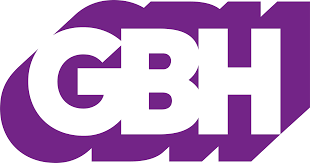Since the leak of a draft majority Supreme Court opinion that would overturn Roe v. Wade, people in favor of abortion access have been looking for ways to help.
Many advocates started sharing resources and links to donate to abortion funds on social media. The National Network of Abortion Funds, a network of more than 90 autonomous nonprofits, recently completed a fundraising campaign that it says brought in $2 million nationwide. Its Instagram account got an influx of 25,000 new followers over the last two months.
People who work for organizations in Massachusetts that provide abortion funds are generally confident with their abilities, in a post-Roe nation, to coordinate statewide and across state lines.
“We’re good collaborators,” said Marcy Ostrow, who’s been working with the Jane Fund for two decades. “We’ve been doing this for years. We’re ready for this. This is what we do.”
So what exactly are abortion funds, and what do they do in Massachusetts?
What is an abortion fund?
Abortion funds directly pay for some or all of the costs of a person’s abortion. Other funds, not typically referred to as abortion funds, exclusively pay for a patient’s related costs such as travel, childcare and abortion doulas — often called “practical support.” Some funds do both.
It creates a “Venn diagram of support,” explained Kate Glynn, a board co-chair of the Abortion Rights Fund of Western Massachusetts.
Do abortion funds do anything else?
They refer people with additional needs to other supports and resources such as:
- Helping people get on state health insurance. Some funds direct callers to Health Care for All’s helpline, which will help people determine if they qualify for a public health insurance option and get signed up.
- Local hotlines and online resources, including the Planned Parenthood League of Massachusetts’ sexual health counseling and referral hotline; the Boston Abortion Support Collective, which offers support to people experiencing pregnancy loss; and the online searchable database of Massachusetts providers maintained by Reproductive Equity Now, formerly NARAL Pro-Choice Mass, which specifically highlights whether the clinics offer abortions since some centers, known as pregnancy crisis centers, advertise helping people who are facing an unplanned pregnancy but in reality discourage abortion as an option and do not provide it.
- National resources like the Miscarriage and Abortion Hotline, which offers expertise on self-managed abortions; All Options Pregnancy Support, which has a peer-counseling talkline to discuss choices of what to do with a pregnancy; and Faith Aloud, a program under All Options that offers religious or spiritual counseling for pregnancy.
To read the full article, click here.

